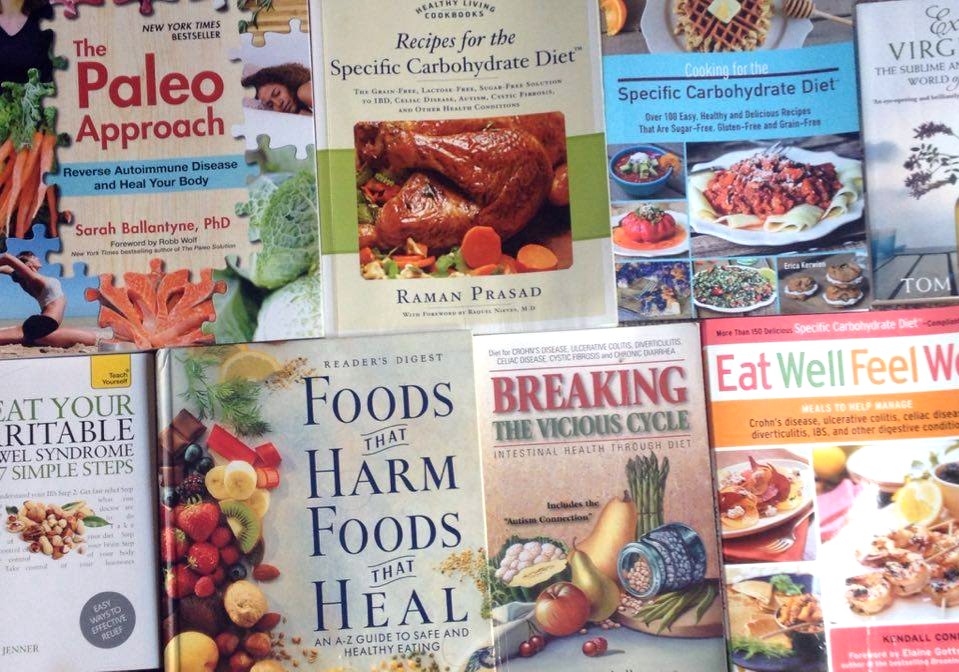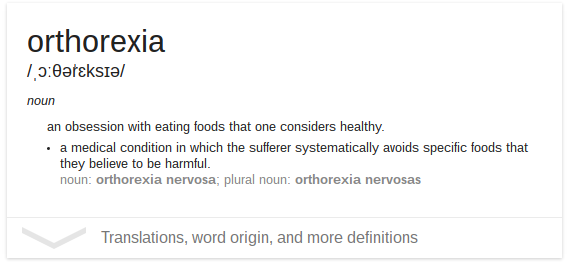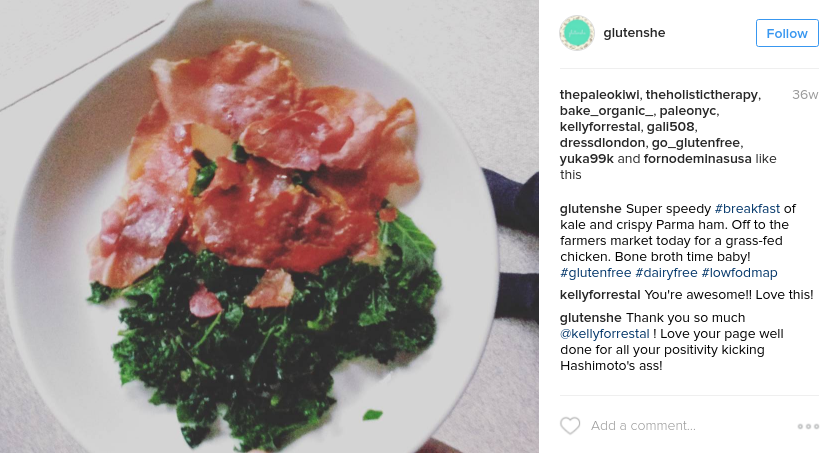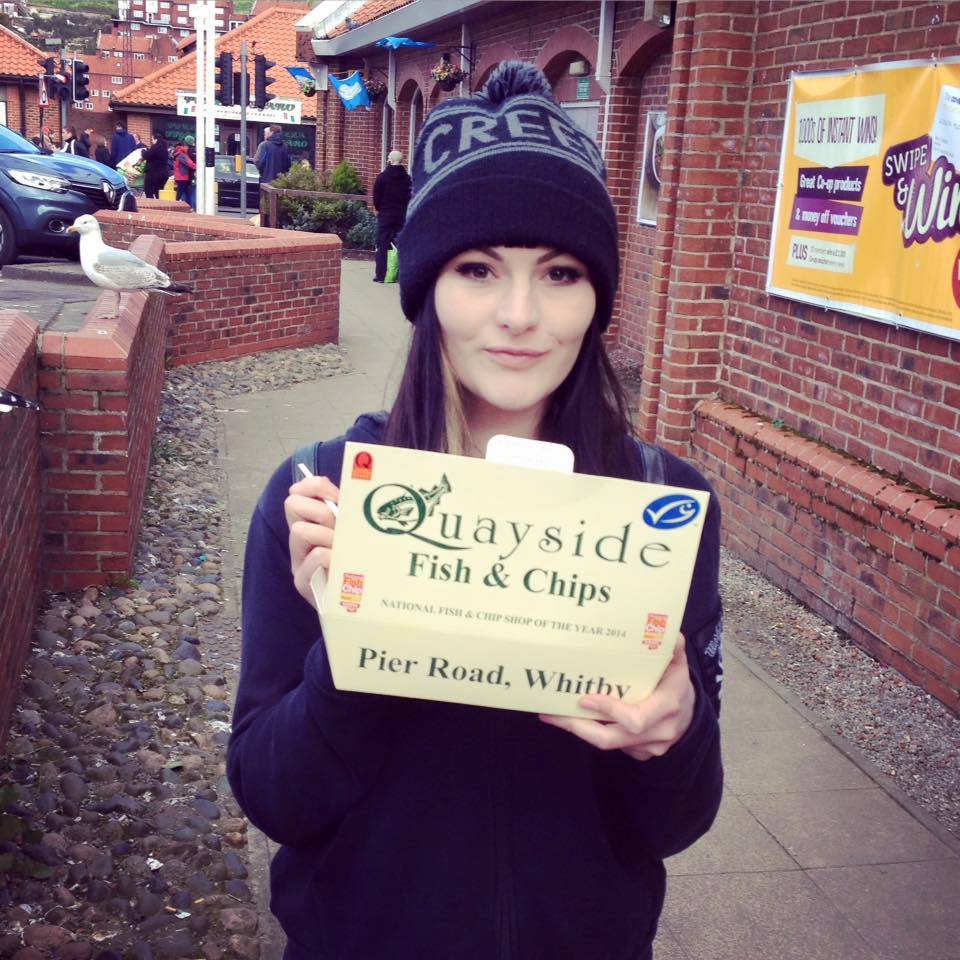Obsessed & orthorexic: how clean eating took over my life

It all happened so fast. One moment I was complaining about yet another inflammatory attack from what appeared to be a harmless gluten-free soup: the next I was a stone lighter, skint, and having panic attacks at the thought of a potato.
No, it wasn’t drugs.
What I’d embarked on was a religious health trip, cutting out major food groups on my quest to not feel like shit. Unbeknownst to me, I’d become a disciple of one of the most restrictive diets out there.
I was diagnosed with coeliac disease four years ago and a gluten-free diet hasn’t made me better in the way I thought it would. Doctors said the cause of my constant abdominal pain and bloating was down to IBS, so I went on a low FODMAP diet (which cuts out a lot of fruit and vegetables).
I paid £200 for a York Test – a company that test for food sensitivities if you send them a blood sample in the post. I was told I was intolerant to cheese, egg, cashew nuts, tuna, carrot, lentils and yeast.
Then I delved deeper. I spoke to a nutritionist, who advised me to buy The Autoimmune Protocol by Sarah Ballantyne, PHD. The book is full of scientific research, followed by an autoimmune paleo diet harsher than Miss Trunchbull’s chokey. It felt like a breakthrough reading that.
I then spoke to a guy who told me all about ‘leaky gut syndrome’ who had followed a similar diet. I read, read, read – blogs, books, the lot – until I my brain was crammed with nothing but digestive jargon, ingredient lists and technical drawings of gut walls.
By this point I had cut out most food groups (you can read about what I did in a bit more detail here). All I had left was meat, offal, fish and vegetables. I noticed some FODMAPS on the autoimmune paleo diet, such as sweet potato, actually gave me stomach pain. So I cut out all of the FODMAP fruit and veg, too. This was on top of food groups like nightshades (potatoes, peppers, tomatoes etc) which apparently triggered my autoimmune disease.
I pretty much lived on bone broth, salmon and spinach. I asked my boss if I could start working from home to cook the meals I needed, I cancelled social plans whenever they arose, I found myself crying on the phone to my mam every night, I was forever at the doctors/hospital and I’d talk about how much sugar was in a jar of pasta sauce to anyone who listened.
My bank balance took a significant plunge. Mainly due to the fact I was eating only grass-fed meat from a local butcher (antibiotics from supermarket meat irritate your gut) and organic vegetables. But also because I was forking out on more supplements than a Holland and Barrett stockist on New Years Eve. Digestive enzymes, L-glutamine, slippery elm, colon cleanses… at one point I spent 50 quid on some probiotic supplements. Due to the ‘unhealthy’ ingredients used to bulk up supplements, I was buying the cleanest, most high-end stuff I could… because my bible told me to.
The irony of it all? I was feeling the worst I’d ever felt in my life. It hit me hard: emotionally, mentally, physically, socially. I was a leaf; fragile. I wept at the thought of food. I barked at friends if they told me what they were having for tea. I ranted about how little the doctors knew about diet: how they didn’t care about me, or the fact I was probably going to die of colon cancer by the time I was thirty. (By the way, that was after reading this nightmarish piece by the doctors of fear over at SCD Lifestyle).
Oh! And while all this horror was enveloping around me, I had read so much about cortisol (the stress hormone) and its effect on digestion that I developed anxiety about anxiety. Stressed at the thought of getting stressed! Where is the logic?
Doctors told me that I had reached the underweight part of the BMI spectrum. I didn’t care – they knew nothing about diet or wellness like I did – because diet doesn’t make money like pharmaceuticals do.
They prescribed laxatives because I wasn’t going to the toilet. No surprise there: I wasn’t consuming half as much fibre as I should. I avoided taking them as my bible advised not to (laxatives aggravate leaky gut); until I hadn’t gone in a week and could bear it no longer. I even bought myself an enema kit. Good Lord – the enema! You’ve not experienced true defeat until you’re lying on your bathroom floor, shoving laxatives up your arse.
It was only when doctors told me they’d seen ‘superficial growth’ of my villi (the finger-like things in your small intestine that gluten destroys in celiacs) post-endoscopy that I could finally relax. They said my diet was dangerous, that I should start eating things like potatoes and rice as I was depriving myself of nutrients… and a life.
So I did. I started introducing things I was once terrified of back into my diet. While it massively freaked me out at first – I now feel so much better. For the past few months, I’ve been treating myself to a whole range of foods. And wine! Probably a bit too much wine. I also went all the way to Whitby to try a gluten free chip shop! Who’d have thunk it?
I’ve come such a long way since those dark ‘leaky gut’ days that I’d almost forgotten about it all (sweet, sweet repression). Until I watched a documentary this week on BBC Three called Clean Eating’s Dirty Secret, that is. Hosted by vlogger Grace Victory, the documentary aimed to investigate the health repercussions of ‘clean eating’.
Here’s what I learned from the show:
- Anyone can become a ‘nutritionist’. All you need to do is 20 hours of online training.
- The first wellness blogger, Belle Gibson, lied about clean eating curing her brain cancer. She never had brain cancer in the first place.
- There is an actual real life diet called a potato cleanse.
- The name for my problem is ‘orthorexia’ – an eating disorder with an obsessive focus on ‘healthy’ eating.
I’m not one for putting labels on things, but it was nice to know there is a name for what I’d suffered with. You can read about it extensively here, or in a handy little infographic here.

Put simply, orthorexia causes totally OTT emotional distress in relation to food choices perceived as unhealthy. It involves compulsive behaviour and mental preoccupation with food choices and an overwhelming fear of disease. Dietary restrictions increase over time, eliminating entire food groups. The result? Malnutrition and weight loss (although this is not the primary goal – health is).
I basically ticked all the boxes. Which made me think back to when I was in full orthorexic meltdown mode: I spoke with so many people with autoimmune diseases all over the Internet, trying to help each other. They were all dealing with similar problems, cutting out food groups, obsessing, worrying. How many people are actually suffering from orthorexia, I wonder? If it was clinically recognised, there’d be more help for people going through what I was going through. There would be loads more information for them to realise their problems and address them – rather than trying out every bit of conflicting health advice from unqualified sources that the web is swarming with.
For me, Grace Victory hit the nail on the head with so many points raised in the BBC documentary. She interviews a host of health food bloggers and vloggers who describe the whole wellness movement as a fashion, with a ‘if you’re not eating clean, who are you?’ credo. You know that feeling – your Instagram feed overflows with smoothie bowls, #cleanliving boasts and enough carrot spaghetti (carrotti?) to exhaust Bugs Bunny – and suddenly you’re wondering how the hell you’re going to get your life together and log out of Deliveroo.
Not that she’s demonising healthy eating, especially not for those with coeliac disease. She regularly goes back to a scientist throughout the programme, who comments on the inaccuracy of ‘facts’ shared by the likes of Deliciously Ella, Helmsley + Helmsley and Madeleine Shaw. Facts about gluten being ‘sandpaper for the gut’, for example; which doesn’t affect anyone unless they actually have coeliac disease – which is 1% of the UK population.
It’s only when you see trends such as ‘potato cleanses’ (yes, really) set by bloggers that you see how much power is in the hands of these health food advocates – many with no scientific-based facts. Let’s not forget, the health and wellness market is a trillion dollar industry (wink wink).
If I hadn’t been told that I had the slightest bit of villi growth I’d have never come out of that obsessive tunnel-vision. At one point, I genuinely believed I was going to die if I broke my autoimmune protocol and say, ate a tomato. I needed that scientific fact that I could eat that tomato without damaging my gut – only then did I dare ‘break’ my protocol.
My advice if you think food is making you ill? Keep hammering your doctor for tests – and don’t give up. Listen to your body. Make food diaries. Eat the food pyramid if you can, keeping things as natural as possible. Exercise. Treat yourself! Taking pleasure in the food you eat is just as important as eating ‘clean’, mentally and physically. And most importantly – don’t believe everything you read on the Internet (she says, writing a blog post about health and food, on the Internet). Also, be happy. Serotonin is a wonderful thing – science says so.



Thanks for sharing your trials and tribulations! I’ve been down that rabbit hole myself, but luckily not to that full extent. Although, it seems every time I get glutened the aftermath causes me to obsess again about my food choices. Your post reminds me to keep calm the next time it happens and push through.
Bless you Sara! It’s hard not to obsess but the anxious thoughts are normal when on slip up can make us very poorly. But stress messes up your whole digestive system so acknowledging them as ‘just thoughts’ can definitely help recovery 🙂 hope you’re doing well x